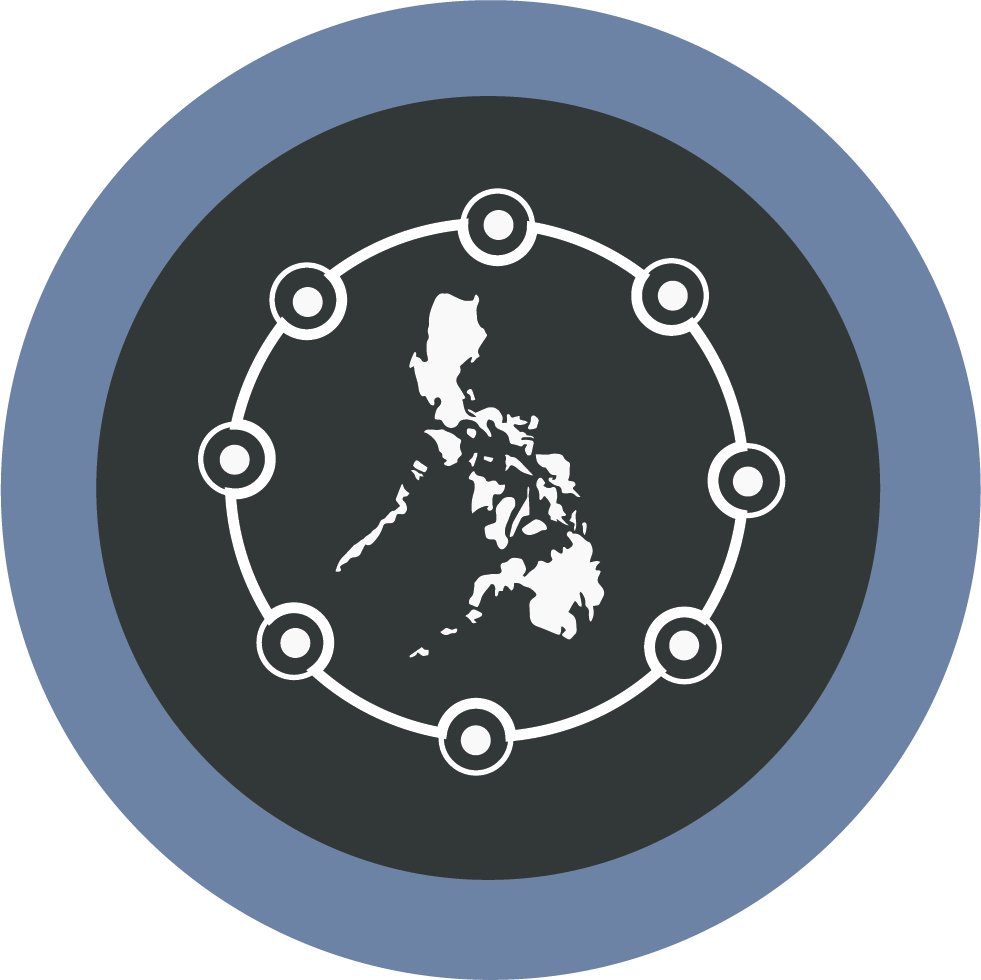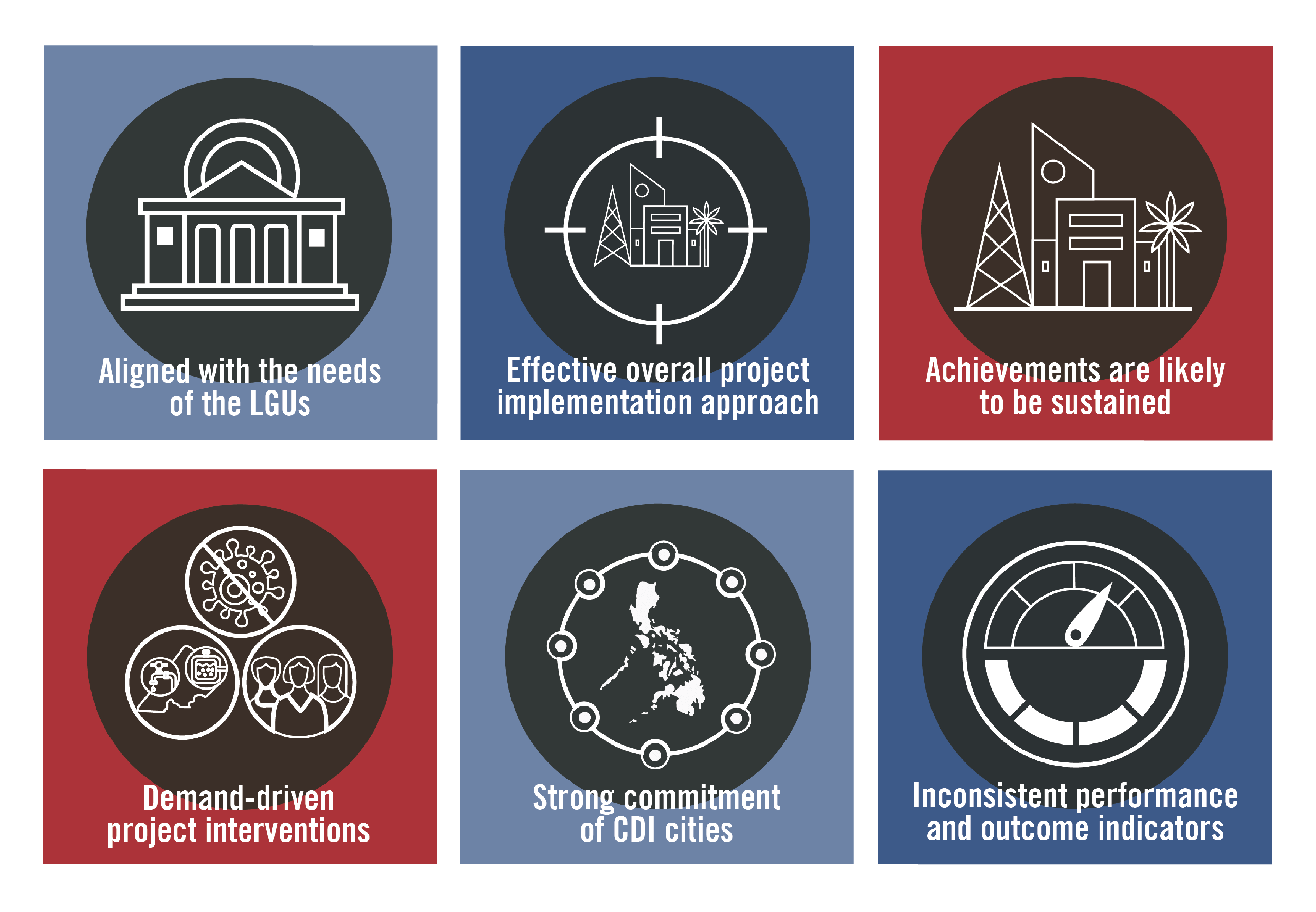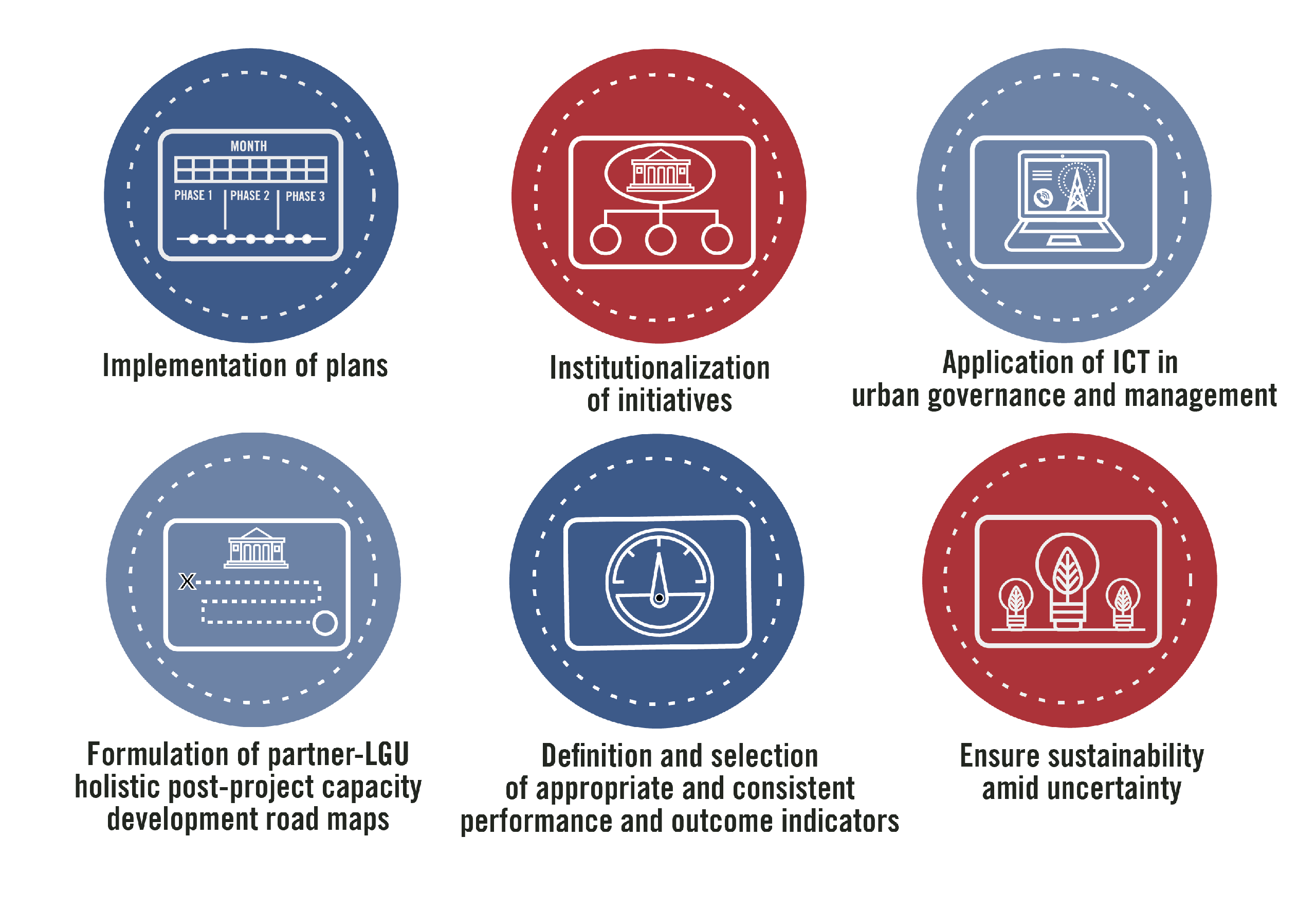Conclusions
-
01
Relevance:
SURGE interventions to improve the institutional capacity of CDI cities in inclusive and resilient urban development contributed to USAID’s development priorities under the Cities Development Initiative-Partnership for Growth; CDCS (previous and current) and USAID’s policies on urban resilience and WASH; the Philippine Development Plan 2017-2022; USAID’s direction to improve the competitiveness of second-tier cities; and the National Spatial Strategy (NSS) of the Government of the Philippines. The SURGE project was demand-driven and highly aligned with the needs of the CDI cities.
-
02
Effectiveness:
The SURGE project helped strengthen capacity in inclusive and resilient urban development and improved the enabling environment for local economic development for the target CDI cities. SURGE also improved connectivity and access between urban and rural areas by addressing local regulatory constraints that limit the mobilization of investment capital and increase the costs of doing business in the target CDI cities.
-
03
Sustainability:
Factors that will contribute to the sustainability of SURGE activities include:
-

The government initiating national laws mandating that Local Government Units (LGUs) mainstream the interventions initiated
-

LGUs adopting policies and plans in areas supported by SURGE
-

Key city stakeholders acquiring the technical expertise needed to perform mandated functions as a result of the project’s capacity building activities
-

LGUs having adequate budgets to implement immediate follow-through activities. Changes in political leadership arising from the local elections in 2022 could be a hindering factor to sustainability


